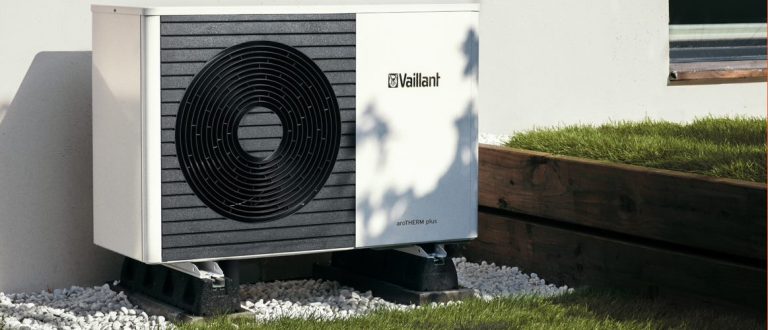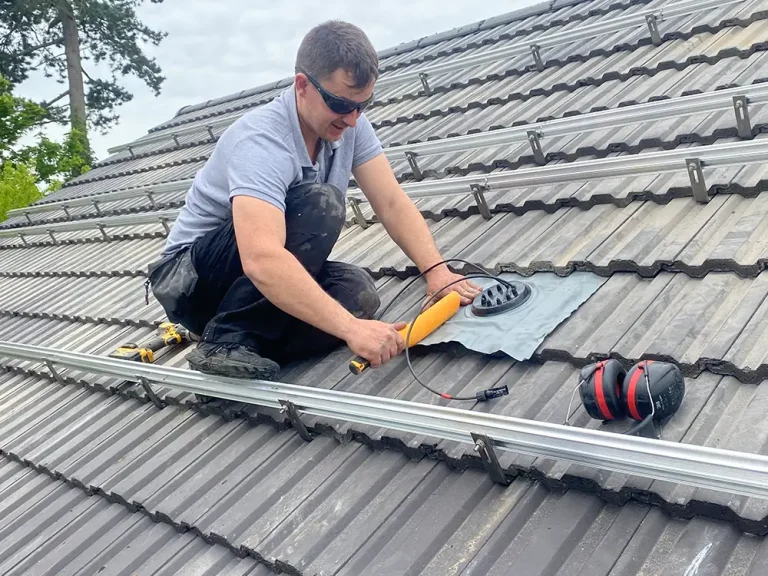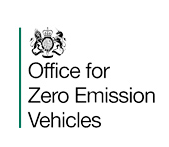EV CHARGING
EV Charging
As part of your renewable energy transition we can install electric vehicle chargers for homes and businesses. We offer a range of wall and pedestal mounted EV chargers from manufacturers such as PodPoint, Myenergi, Tesla and GivEnergy.

EV Charging Solutions To Suit You
Dedicated EV chargers observe the load in the house, the available renewable energy and manage the power range accordingly – this is known as load management. A smart charger installed as part of an integrated and managed system that makes use of any surplus green energy.
Smart charging is a safe and convenient way of charging your electric vehicle (EV) at times when demand for electricity is lower, for example at night, or when there is lots of renewable energy on the grid. Charging during these off-peak times not only reduces costs for EV drivers by using cheaper energy rates, but also helps to prevent unwanted intervals of really high demand for electricity from the grid.
Smart chargers provide you with tailor made charging to suit your lifestyle and demands. Whether you need a “fast” charge to get you going in a hurry, or are happy to wait for your charge to take place use a combination of grid and home generated renewable energy. We can install a charger that gives you the flexibility to charge on your terms
Helping lower your carbon Emissions WITH EV CHARGING
Electric Vehicles produce no emissions when being driven, and the electricity used to charge them is increasingly being generated from renewable sources. Electric Vehicles are an important part of lowering carbon emissions and meeting climate change targets.
Most EV users charge their vehicles when they arrive home from work in the evening, corresponding with peak demand on the grid. Using smart charging, you can still plug in your vehicle when you arrive home from work, but the chargepoint then manages and adjusts the vehicle’s charging to a time when electricity demand is lower.
In the future, smart charging will also increasingly be used to charge your EV when renewable energy is more abundant on the grid, such as after windy or sunny periods. This helps reduce carbon emissions further. Installing a smart charger now will mean you are future-proofed to take advantage of variable tariffs in the future.
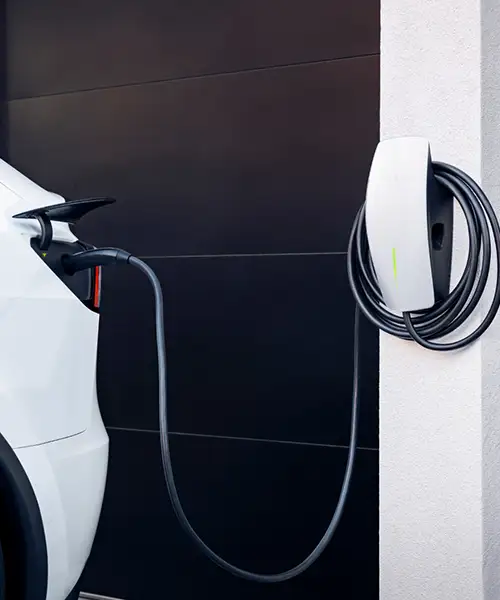
Make use of renewable energy
Reduce your carbon footprint
Charge direct from grid
Faster charging
Stay in control of charging with your App
Benefit from off-peak charging
Are you considering solar & battery storage too?
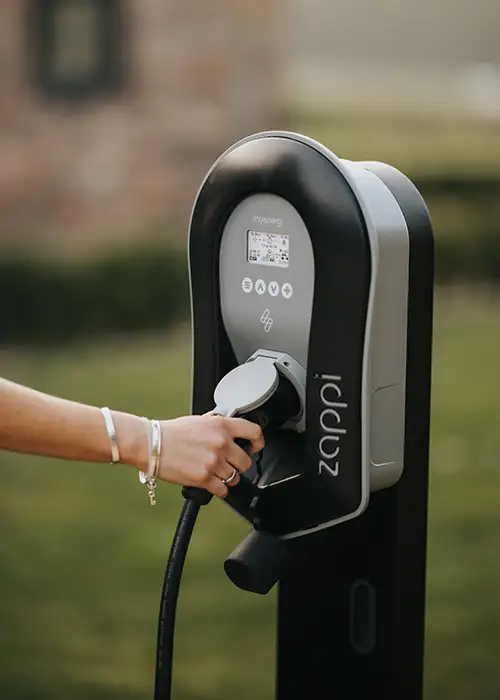
Do all electric cars use the same plug?
These are two different kinds of connectors for EV charging an electric car at home.
Most likely it will be a Type 2 connector. Most cars use this type of plug as it was mandated by the EU that all plug-in cars from 2014 must have a Type 2 socket.
There are some cars that have the older, differently shaped Type 1 socket, such as the Mitsubishi PHEV. But these are rare. Type 1 to Type 2 converters are however available.
Will I need a tethered or untethered EV charging lead?
Untethered: No attached charging lead. More hassle every time you want to plug in, but allows you to swap out the lead.
Tethered: The charging unit has a power lead attached to it. It’s convenient as it means you can just pull up and plug in, as opposed to retrieving your car’s charging lead from the boot.
We can manage every element of your EV charger installation, helping you to choose the right charger for you and your vehicle.
Useful links
Here are some great information sources and resources if you would like to find out more about EV Chargers.

